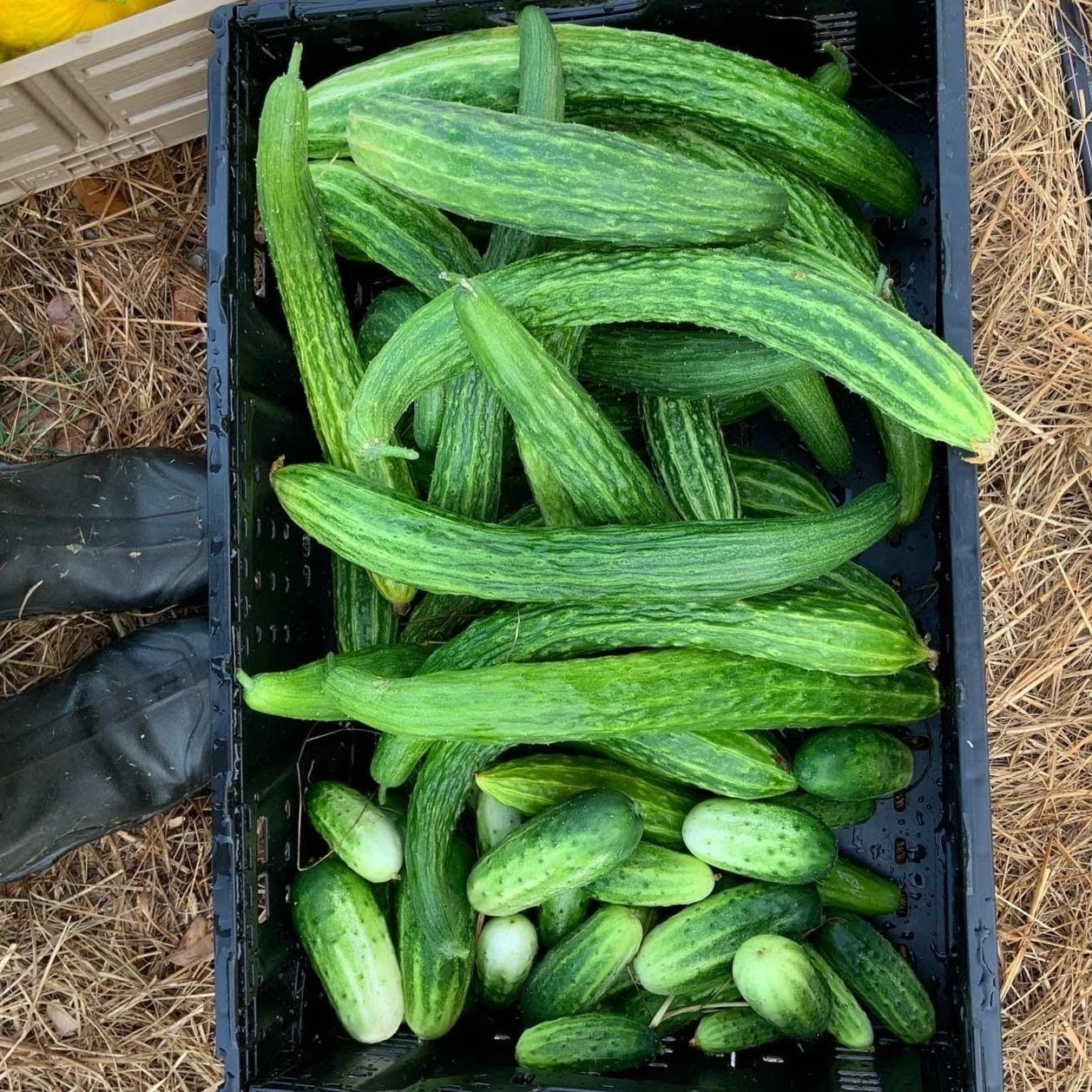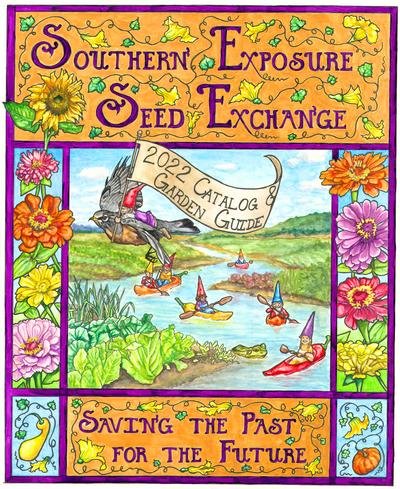Farmers are at the forefront of Climate Change.
Our proximity to the coast leaves us especially vulnerable to hurricanes, tornadoes, and flooding as climate change worsens and deteriorates our coast. Instead of relying on the destructive industrial agriculture system and oil and gas industries that have made our community so vulnerable to climate change, we see farming as a way to invest in the land and ecosystem in a way that helps to sequester carbon into the soil by physically putting roots in the ground.
Building seed biodiversity in the Gulf South .
It all starts with a seed. Our ancestors have been stewarding seeds for centuries. Seeds that are breed and grown in our region and more adapted to the extreme climate, disease, and pest pressure that we face. To help build the seed biodiversity of our region, we are committed to sourcing seed from Southern and small seed growers. Many of the varieties we grow on our farm come from southern seed cooperatives, such as Southern Seed Exposure. We aspire to become seed stewards one day and help continue to collect and protect old Southern varieties.



No-Till + Naturally Grown
Our farm consists of permanent raised beds using no-till regenerative farming practices. We use a BCS with the rotary plow attachment to “raise” our beds but we do not till the center of our beds. Each bed gets broad forked and mulched with hay to retain moisture and keep the soil covered. We put cardboard and wood chips in our pathways to help absorb water as well and slowly decompose so that we can have compost for the top of our beds next season. When we plant, we open a little nest in the hay and burry each plant with a mixture of vermicompost and vermont compost. We also regularly cover crop fields or rows in between crops to build soil biodiversity and increase the organic matter in our soil. Although farming in this way is extremely labor intensive, we believe that it is the only way we can create resilient crops and farming systems to help us brace the affects of climate change.


